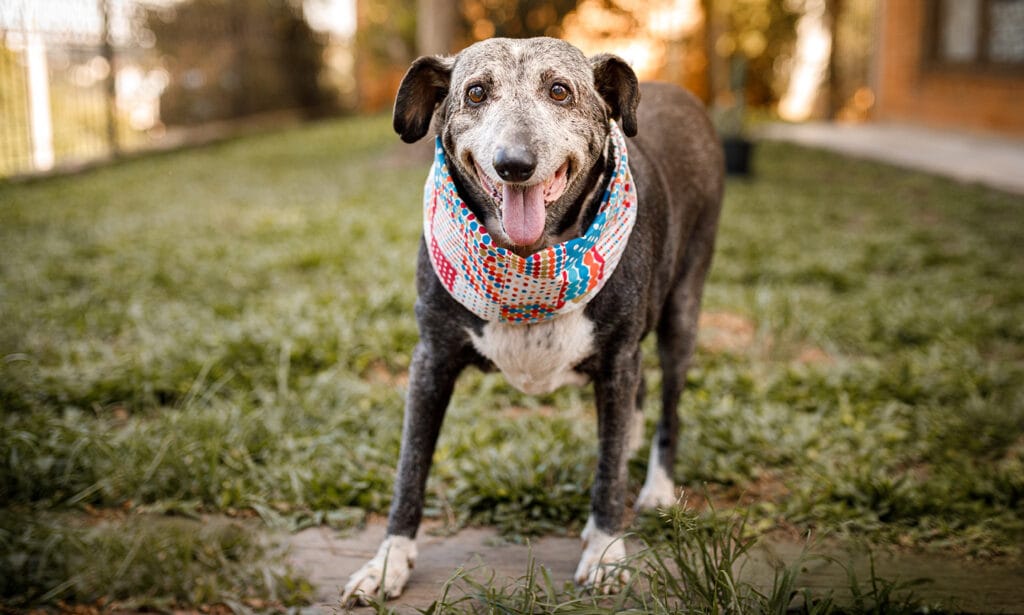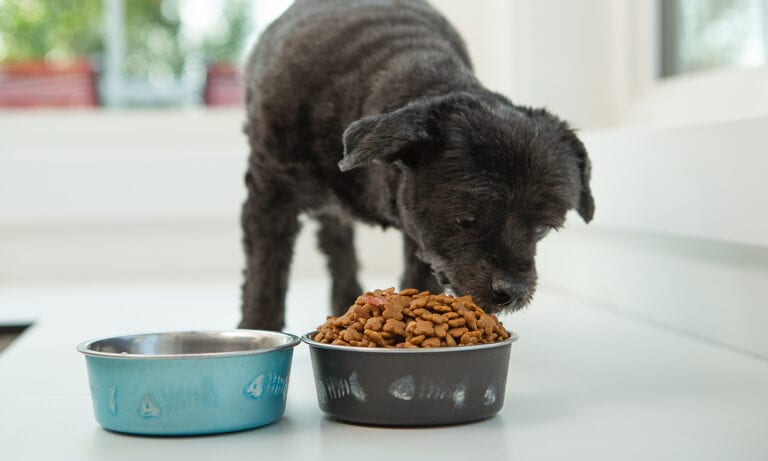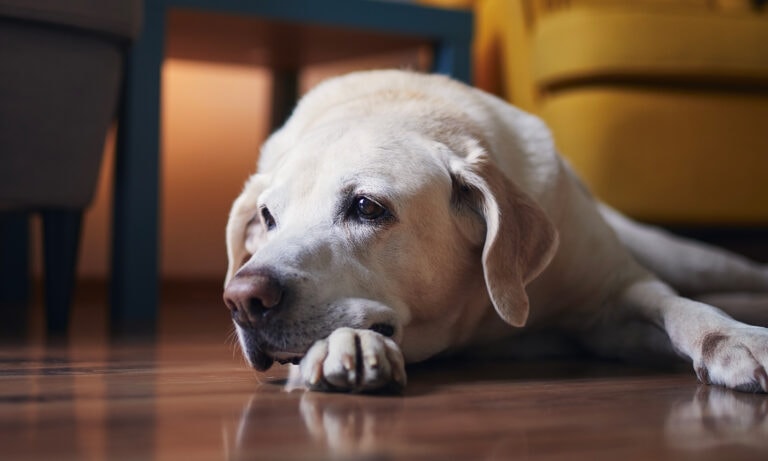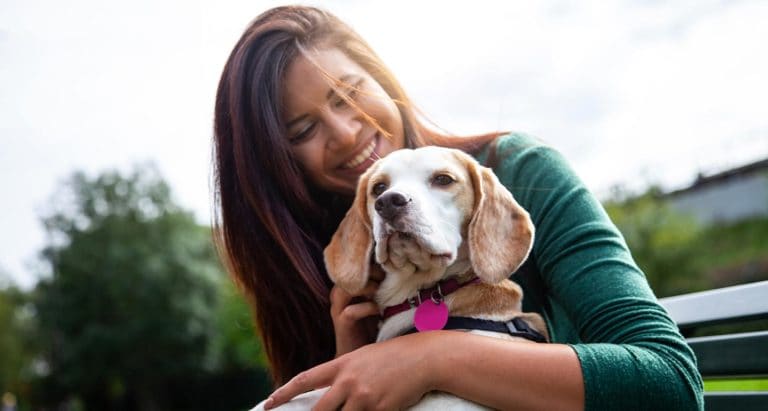Thanks to improved nutrition, knowledge and veterinary care, many dogs are living longer and healthier lives. However, aging dogs have different health needs than younger canines.
If you know at what age your dog is considered a senior and how that impacts his health, you can better care for your furry friend during his golden years.
At What Age Is a Dog Considered a Senior?
Although most people think that one human year of age equals seven dog years, it’s not that simple. Because individual dog breeds age at a different pace than others, the age a dog is considered a senior will vary with the size and breed.
In general, large dog breeds age more quickly than small dog breeds. Below is a guide based on breed size:
- Small breeds are considered senior dogs around 10–12 years old.
- Medium size breeds are considered senior dogs around 8–9 years old.
- Large and giant breeds are considered senior dogs around 6–7 years old.
Read more about how to calculate your dog’s age.
Signs a Dog Is Aging
The most common sign of aging that dog parents share with me is that their pup is “slowing down, so he must be getting old.” This is partly true.
While older dogs likely will be slower, slowing down is not usually a sign of aging. It can, however, be a sign of joint pain, which is common in older dogs.
Some aging signs to look for, other than the date on the calendar, include:
- Muscle loss
- Weight gain or loss
- White hairs on the muzzle and face
- Increased opacity in the eyes due to thickening of the lens over time (may be mistaken for cataracts)
- Sleeping more or difficulty sleeping
- Changes in behavior associated with canine dementia, such as staring blankly at walls or corners
- Loss of hearing
- Gum disease
If you notice any of these signs in your dog, it is time to get your veterinarian involved to help you improve your companion’s quality of life. Schedule a veterinary checkup to discuss ways to help your aging dog.
How To Care for a Senior Dog
With the right care, senior dogs can have as much pep in their step as younger canines. The most important things to consider are yearly veterinary care, good nutrition and age-appropriate exercise and mental stimulation.
Veterinary Care
Older dogs are more prone to certain diseases, such as hormonal conditions, cancer and osteoarthritis. Moreover, things can change rapidly in an aging dog’s body, which is why it is important to have a good relationship with a local veterinarian and take your dog in at least once a year for a physical examination and any recommended tests.
If disease is caught early, your veterinarian has a better chance of curing or managing the condition. This helps you maintain a better quality of life for your older fur friend.
Nutrition
Obesity is a big problem in canines. It is estimated that over half of the U.S. dog population is too heavy, according to the Association for Pet Obesity Prevention. Obesity exacerbates pain from arthritis and shortens both the quality and length of life. Therefore, one of the most important things you can do for your dog is keep him at a healthy weight.
If you are unsure about your dog’s ideal weight, ask your veterinarian to help you determine that number. The middle-age spread affects dogs as well as humans, so feeding a therapeutic weight-loss diet, like the Hill’s Metabolic and Mobility diet, might facilitate weight loss faster and more effectively than feeding an over-the-counter diet. This particular formula also can be fed as a regular diet. Work with your veterinarian to decide what diet is best for your senior dog.
Aging dogs also are at risk for canine cognitive dysfunction, otherwise known as doggy dementia. Canine cognitive dysfunction is similar to Alzheimer’s disease in humans. Feeding a diet that is high in omega-3 fatty acids, like Purina Pro Plan Bright Mind dog food, in conjunction with daily exercise, may help maintain mental alertness in aging dogs.
Other ways to provide your dog with omega-3 fatty acids include offering him dog supplements. Fish oil supplements tend to contain high amounts of omegas. Again, speak with your veterinarian to discover the best option for your pet.
Physically and Mentally Exercising Your Senior Dog
Your senior dog needs regular exercise to help keep his joints healthy. When choosing the type of exercise your dog needs, let him take the lead. Every dog is different. One dog might enjoy fetch, while another might love to swim. Try a few different exercises for your senior dog to see what he likes best.
It is also important to continue to challenge your dog’s mind with training. Old dogs can learn new tricks, and they tend to like doing so. Plus, it helps their brains stay healthy.
You can take your dog to training classes or teach him new things at home. For example, teaching your dog to “find it” can help keep his mind active.
Old dogs also benefit from exercising their problem-solving skills. One way to challenge your senior friend is to put his food in a food puzzle feeder, like the Outward Hound fun feeder, so he has to figure out how to get to the kibble.
Shop Related Products on Chewy
More about caring for your senior pup:
Share:












